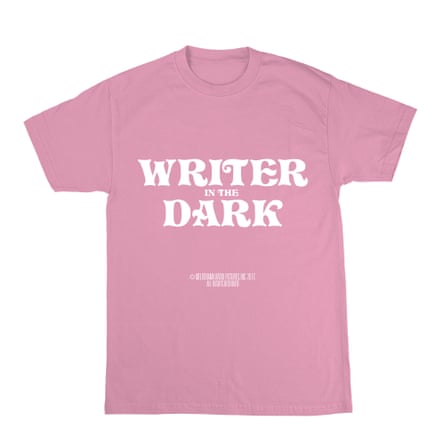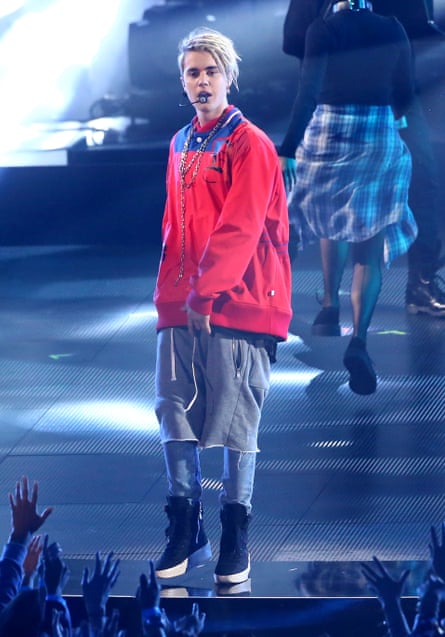From Swinging London to the New Romantics, music and fashion have long gone together like mum jeans and a breton top. These days, thanks to Kanye West’s Yeezys, grime music’s tracksuit fever and the grunge aesthetic channelled by everyone from Saint Laurent to Urban Outfitters, it’s a bond that is tighter than ever. Unsurprisingly, then, there’s an app for that, one which aims to distill your music taste into style tips.
The catchily-titled Eison Triple Thread works like this: once downloaded, it matches the user’s most-listened-to Spotify tracks with inspiration boards and then generates suggestions of items to buy. In short, it takes a song and converts it into insights on an artist. “So a guy who was born between 1984 and 1988, likes hip-hop and works in tech in San Francisco will probably like clothing that’s on-trend,” founder Julian Eison said earlier this year. “And people who listen to 60s music like the Beatles will have suggestions like high-rise jeans and corduroy.” The catch is the clothes are all manufactured by the company and, currently, it’s open only to men in the US, which could feel sexist if it weren’t for the fact that culture repeatedly emphasises the fact that many men struggle with their personal style (see: Queer Eye).

Eison’s methodology is simple: “When people go to concerts, they tend to dress like the other concertgoers or emulate the artist.” But while his reasoning works to an extent – most British indie gigs are still a sea of plaid shirts, skinny jeans and Doc Martens, with festival fashion now its own summery, Little Mix-esque niche – it does feel like an oversimplification. He is, however, keen to emphasise that his algorithm isn’t as simple as merely selling an artist’s image back to their fans. Rather, it aims to “try and understand why [someone is] listening to that artist, and understand their relationship to style”.
But is funnelling the bands we listen to into Instagram-worthy looks really a replacement for the awkward joy of figuring out your own style? For me, it’s a phase and a challenge I remember fondly, from poorly dyed red hair that ended up more Ronald McDonald than Shirley Manson, to a Madonna-in-the-Guy-Ritchie-years tweed flat cap, to the jeans tighter than Pete Doherty’s in 2002. One particularly bad era, around the release of Avril Lavigne’s debut album, involved white vest tops that were actually just M&S pyjamas (although perhaps I was merely ahead of the sleepwear-as-daywear trend). Nowadays, I claim to have a vaguely grunge aesthetic, though 90% of my wardrobe is from the Oxford Street branch of Topshop, so my rock credentials come veiled in substantial amounts of polyester.
Douglas Greenwood, a journalist covering music and fashion for i-D magazine, believes that the relationship between both disciplines is actually stronger than ever. He notes that most big brands “have got to where they are not by being highly respected by other fashion designers but more so by the clout they get from having major figures in the music industry wear their stuff”. He also cites the labels that have benefitted from their relationship with musicians, among them Dior Homme’s Kim Jones (A$AP Rocky) and Louis Vuitton’s Virgil Abloh (Kanye West), the latter of which also appointed the fashion house’s first music director, British DJ Benji B.

However, he is dubious of trying to reduce the relationship to algorithms. “There’s a difference between stylists and personal style that’s put together for you by a computer that says here’s how to dress if you listen to folk, or trap or bubblegum pop,” he says. “You sort of risk piling all those people into the wrong categories, and hypebeast [streetwear fans who will do anything to be ahead of the curve] culture seeping into every other genre of music.”
Another thing to consider: is everyone’s dress sense inspired by their music taste anyway? I’m thinking of people such as my friend Josie, who listens almost exclusively to rap but dresses in 50s-style boatneck dresses and is often asked whether she’s French because pourquoi non? (Little do strangers know her favourite song is by Lil Wayne.) Sure, there’s my friend Penny, who recently cut all her hair off and bleached the stubble white prior to a sabbatical in Berlin where she listened to techno every night, but I feel like it’s the sort of bold stylistic move she would have gone for regardless.

And what of those folk who claim not to listen to anything but Ed Sheeran? Band T-shirts, another big trend of recent times, can include merch (think Justin Bieber’s Vetements-aping designs or Lorde’s vintage movie poster-style tees), but are often more closely linked with high-fashion inspo (ie Nicolas Ghesquière kicking off the trend by channelling Iron Maiden at Balenciaga back in 2012) and disposable high-street fashion iterations. Even if your music does influence your taste, not everything is without controversy. “I think, as a queer person, your relationship with [rap] and that kind of dressing can be skewed because [the genre is] inherently homophobic,” Greenwood adds. This in itself is a controversial area; while historically true, the rise of queer rap, from Frank Ocean to Brockhampton, definitely makes the distinction less clear cut than it might have once been.
As the relationship between music and fashion changes and evolves, it seems technology could provide a novel jumping-off point, without replacing our tastemaking skills altogether. “It’s a conversation and a relationship with the user we’re building over time,” Eison says. “It’s not as simple as associating a style with an artist.” So, the next time you’re trying to pick the perfect outfit, perhaps look instead to your playlist, and pray that all those days spent listening to the Mamma Mia II soundtrack don’t translate into sequinned Spandex.

Comments (…)
Sign in or create your Guardian account to join the discussion